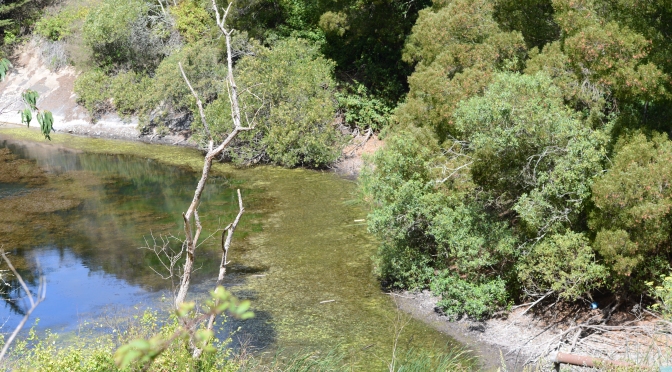Elizabeth Silva
Staff Writer
With California experiencing the worst drought in recent memory, the state is taking drastic action to prevent water waste and misuse by implementing fines for water wasters and water rationing. Currently, USF is in the middle of a city that has yet to feel the drought’s effects.
Governor Jerry Brown asked Californians to voluntarily cut back on their water use by 20% and to prevent water waste on January 17, 2014. To date, however, water usage has only decreased a dismal five percent compared to water usage during this same period of time in previous years.
San Francisco, in particular, is not directly impacted by the drought. Although ads on buses encourage residents to conserve water, San Francisco still has water flowing out of the faucet and it might be difficult for residents to truly realize the extent of the drought.
“The California drought, despite its severity, is not causing much behavior change. For me, the reality of the drought didn’t hit me until I spent a weekend at Lake Oroville, which is California’s second largest reservoir and is currently at 35% of capacity and 48% of historical average,” said Stephen Zavestoski, Sustainability Director of College of Arts and Sciences, and Sociology and Environmental Studies Associate Professor, “Even if we were certain it would lead to behavior change, it’s not possible to take all Californians to a reservoir to see first-hand the gravity of the situation.”
The drought has noticeably affected areas in California where agriculture is the main livelihood.
“Agriculture, the biggest water user of the state, has been hit worst and this will translate into higher food prices for us,” stated Gerard Kuperus, Assistant professor in Philosophy and Environmental Studies. “I believe that since living expenses are already so high in the Bay Area it [rising food prices] will not have a big enough impact to make people radically change their habits in regard to water use. Unfortunately, those who are already struggling to make ends meet will be mostly impacted by higher food prices.”
On campus, USF has replaced a section of grass on the way up Lone Mountain with native plants. Currently, the community garden uses different strategies to minimize water use. There have been experiments with a rain catchment system and there are plans for a hydroponic system.
There has been some controversy surrounding the Ice Bucket Challenge, a social media phenomenon that has people dumping buckets of ice water over themselves to promote awareness of amyotrophic lateral sclerosis (ALS) and to encourage people to donate for research towards finding treatments and cures for ALS. People film themselves dumping buckets of ice over their heads and then post the videos on social media with the hashtag #IceBucketChallenge.
Some California residents have been tweeting the hashtag #NoIceBucketChallenge to protest the water being wasted in the Ice Bucket Challenge, especially during the drought.
“In terms of the amount of water being wasted in the Ice Bucket Challenge, it’s not worth commenting on. There is probably more water wasted daily through leaky faucets and toilets, not to mention crumbling urban water infrastructure, than all the water wasted so far in the Ice Bucket Challenge. If people believe they are doing something for a good cause (ALS), making them feel guilty about their actions will do little more than make them resent the “water police,” said Zavestoski.

